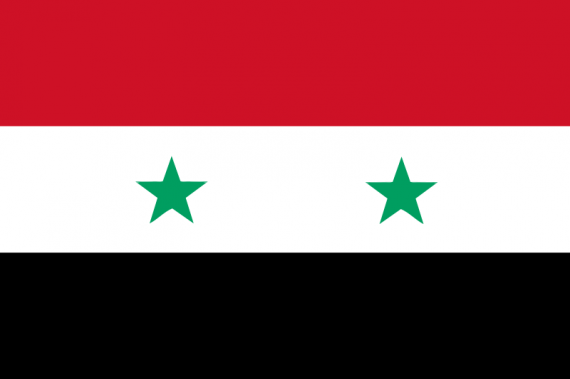Led By Saudis, Arab Countries Increase Pressure On Syria
Earlier today, the Saudi King made his first public comments on the situation in Syria and used it as an opportunity to increase diplomatic pressure on the Assad regime:
Syria came under new pressure on Monday from a widening clamor of criticism by Gulf Arab states over its brutal crackdown on a five-month-old antigovernment uprising, with Saudi Arabia, Kuwait and Bahrain recalling their ambassadors and issuing statements calling on President Bashar al-Assad to change his ways.
The criticism — coming from Arab autocracies that have little or no tolerance for dissent themselves — reflected the growing alienation of Mr. Assad among many of his formerly supportive neighbors. It came as the foreign minister of Turkey, a powerful neighbor and trading partner, headed to Syria for consultations with the Assad government.
The harshest criticism came from the king of Saudi Arabia, who called on Mr. Assad in a statement read on Saudi state television to stop “the killing machine and end the bloodshed.”
Later Monday, Kuwait and Bahrain joined the Saudis in pulling their ambassadors out of Damascus. Kuwait’s foreign minister, Sheikh Mohammed al-Sabah, was quoted by news services in Kuwait City as saying: “No one can accept the bloodshed in Syria” and “the military option must be halted.” Reuters quoted Bahrain’s foreign minister, Khaled al-Khalifa, as saying its ambassador was recalled for consultations and that “we stress the importance of acting wisely.”
The Syrian military continued to defy the growing global chorus of outrage, however, pushing its military assault on the eastern city of Deir al-Zour. Dozens of people have been killed, according to activists, and thousands have fled the city since tanks and troops moved in on Sunday. News agencies reported new artillery attacks on Monday.
Referring to “sister Syria,” the Saudi king condemned the loss of life there and said that “every sane Muslim and Arab” knows that hope for the region will not come from “the blood of innocent people.” He said the actions in Syria were “not acceptable for Saudi Arabia,” and called on Mr. Assad to govern reasonably and make good on his promises of reform.
“The Kingdom of Saudi Arabia stands before its historical responsibility toward her brothers, demanding the stoppage of the killing machine and bloodshed, and the use of reason before it is too late,” he said in the statement, according to a translation by the Saudi Press Agency. “In this regard, the Kingdom of Saudi Arabia announces the recall of its ambassador for consultation on current events there.”
Assad is unlikely to head King Abdullah’s remarks, of course, but it is the latest example of an increase in diplomatic pressure by Arab countries in light of the increasingly brutal crackdown against dissidents in cities such as Hama:
The Saudi monarch’s comments followed similar though less strongly worded statements since Saturday by the Arab League and the Gulf Cooperation Council, a six-nation regional group that comprises Saudi Arabia, Bahrain, Kuwait, Oman, Qatar and the United Arab Emirates. The Gulf council statement urged Syrian leaders to “resort to wisdom and introduce serious and necessary reforms that would protect the rights and dignity of the people, and meet their aspirations.”
Italy also withdrew its ambassador last Tuesday to protest the killing of activists.
The withdrawal of ambassadors was the strongest step taken yet by Arab nations since the popular uprising against the government of Mr. Assad started in mid-March. An unyielding Mr. Assad, however, has ignored the condemnations, and on Monday, the military and security forces undertook fresh attacks on two besieged cities, Hama in central Syria, and Deir al-Zour, in the northeast, along the border with Iraq.
At this point, Assad doesn’t really seem to care what the Arab world, or the world as a whole, thinks and unless someone from the outside decides to intervene I don’t see this ending any time soon.


this has nothing to do with the syrian-iranian connection, im sure. given events in bahrain, i hardly feel that the saudis should have room to complain.
Both Kuwait and Bahrain have withdrawn their ambassadors as well.
As I’ve written elsewhere, this certainly helps Saudi Arabia with its problems with Iran, but also puts it at odds with its general desire to not have sitting governments overthrown. Self-serving, for sure.
This is still a big move for the Saudis.
i strongly agree with the king of saudi,stop the killing machine and end the bloodshed.there could never be a solution to bloodshed.communication is the only solution to this war.